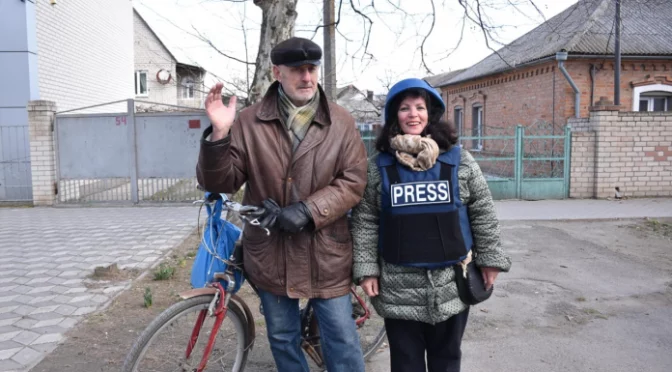Propaganda has been spread on the Wikipedia page of Henichesk, stating the following: “On 24 February 2022, Henichesk was captured by the Russian Army in the 2022 Russian invasion of Ukraine. It was where the famous incident occurred where an old woman confronted Russian soldiers and said ‘Put sunflower seeds in your pockets so they grow on Ukraine soil when you die,’ as well as the death of Vitalii Shakun blowing up a bridge to stop their advance.”
[This is a report from Sonja Vandenende, a Dutch journalist who was embedded with Russian troops in southeastern Ukraine. Previously, Sonja reported on the ground in Syria for CAM. Her reporting substantiates that of Patrick Lancaster, a Russian-speaking U.S. Navy veteran whose reporting on the war in Donbass for eight years is respected by investigative journalists. CAM’s mission is to bring to your attention alternative narratives gleaned by eyewitness accounts—even if they could be misconstrued as pro-Russian.—Editors]
Last week I was embedded with the Russian army and visited two towns in southeastern Ukraine. The first town was called Henichesk, a port city along the Sea of Azov in Kherson Oblast (province) of southern Ukraine, bordering on Crimea.
The Russian army, patrolling the city, went with us—the embedded journalists—for protection. But actually the protection was not really needed; the people in Henichesk, at least the majority with whom I spoke, were very happy that the Russian army was there.
The people that I spoke to all said the same thing: They felt protected from the criminal gangs, with their Nazi ideology, who raged the towns. They in turn hoped that Ukraine will prosper again.

Since the coup d’état of 2014, the economy of Ukraine has become very bad, according to many citizens in Henichesk.
I could see that people were standing in line to get money from ATM machines outside the banks, money which was barely there.
At the market, the food was scarce. The Russian army is providing humanitarian aid, which they do in every village and town, liberated from these criminal gangs. This is how many Ukrainians call them.

Numerous villagers in Henichesk told me that, as the Russians entered their town, they left everything intact. I heard this stated many times. No damage, no dead, no wounded. Most people, they said, are happy that the Russians were there.
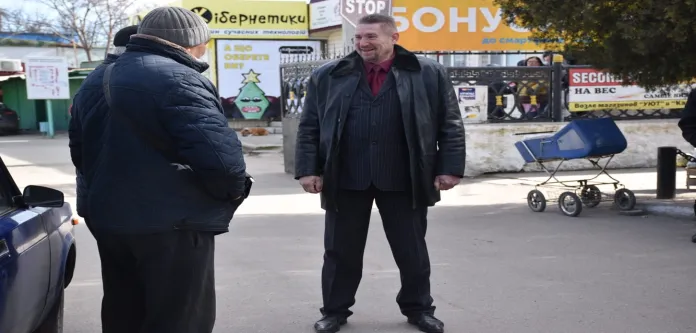
The town of Henichesk was undamaged after the Russian army came. People were rushing on the streets to do their shopping or just talking and socializing on the street. The population was very diverse. It included ethnic Russians, Ukrainians and Tatars. They have churches and mosques.
According to residents, before the 2014 coup d’état,[1] the people lived in harmony. Many Tatars originating from Crimea live in Henichesk. They have been allowed to go back to Crimea since Vladimir Putin became Russia’s president.
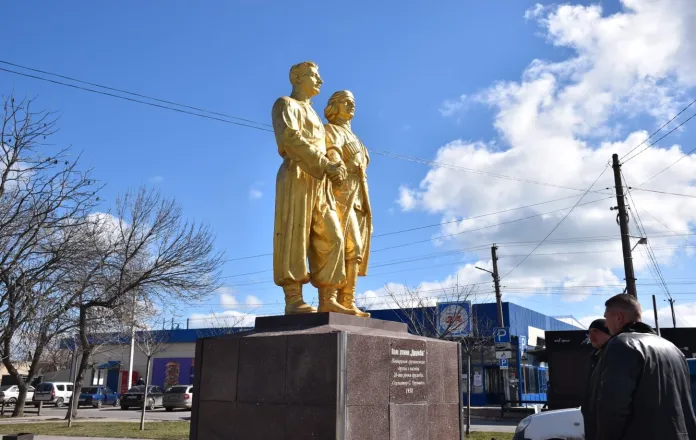
Propaganda has been spread on the Wikipedia page of Henichesk, stating the following: “On 24 February 2022, Henichesk was captured by the Russian Army in the 2022 Russian invasion of Ukraine. It was where the famous incident occurred where an old woman confronted Russian soldiers and said ‘Put sunflower seeds in your pockets so they grow on Ukraine soil when you die,’ as well as the death of Vitalii Shakun blowing up a bridge to stop their advance.”

Indeed, Shakun tried to blow up the bridge connecting Crimea with southern Ukraine. But they neglect to tell that he was not from southern Ukraine, but from Lviv, in the western part of Ukraine. He was also a combat engineer with the Ukrainian Army. The damage his explosives caused to the bridge was actually minor and the bridge is still passable. It is a pity generally that boys (Shakun was born in 1996) should die for a false ideology, by blowing up a bridge without success.
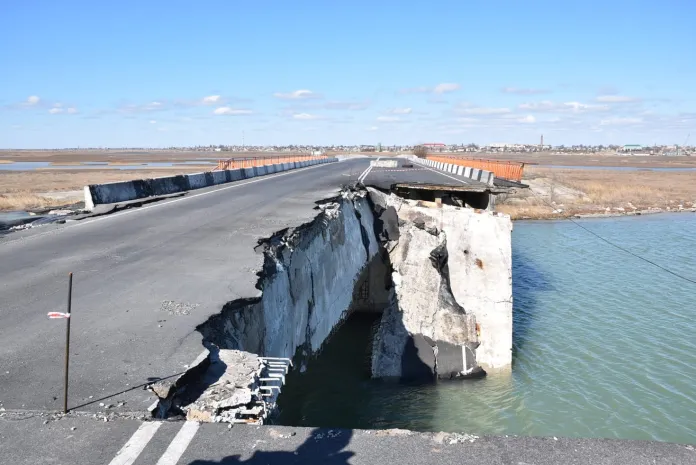
Fact Versus Fiction
Western propaganda claims that the Russian army is besieging towns and that the population is starving. From my observation, the latter was not true in Henichesk or in the next town called Melitopol, which I also visited (to be discussed in a future article).[2]
The Western countries are pouring in weapons, most of them old Soviet weapons into Ukraine to shoot at the “evil Russians,” and imposing sanctions. Nothing positive is being done to help the long suffering people of Ukraine.
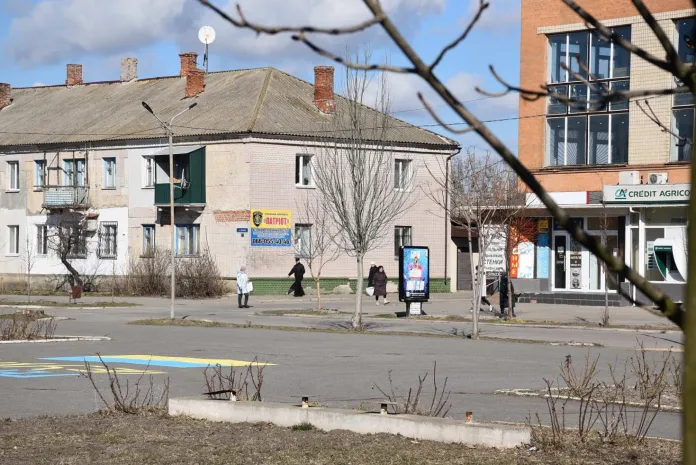
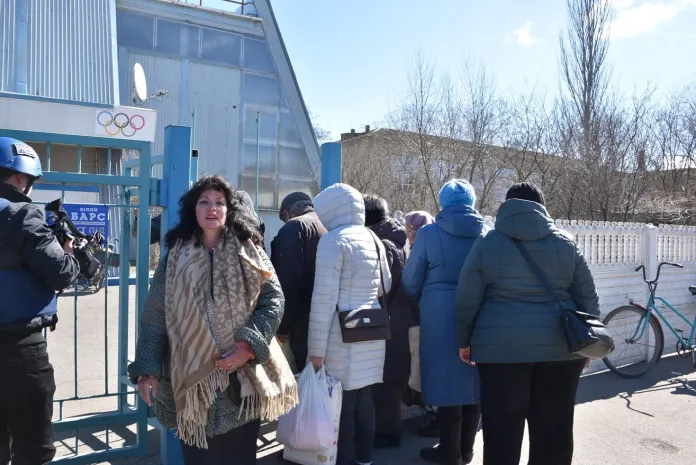
The Zelensky regime is presented as a moral beacon in the West, but has banned opposition parties and spurned a negotiated settlement to the war that could end his people’s suffering. Before the war, Zelensky had failed to stimulate much economic development or curtail corruption, which he himself appears to be implicated in, according to revelations in the Pandora Papers.
In the past years, many Ukrainians have gone to Russia. Crimea is nearby and there they get shelter and help. Russia has no refugee camps, but provides them with shelter, food and medical care.
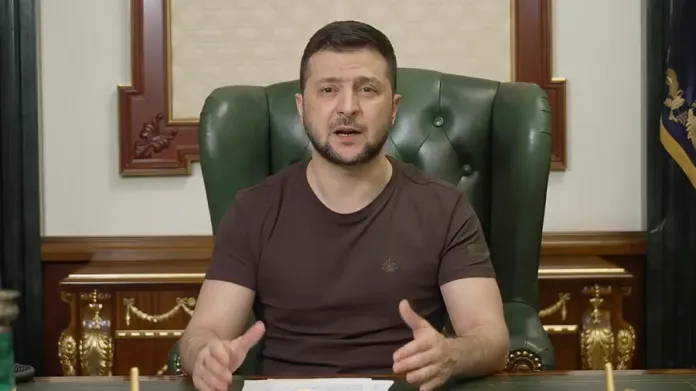
Ukraine is left by itself to bleed.
Western countries have no interest in its economy or people, because Ukrainian people have many similarities with their “brother” countries—Russia and Belarus—and would naturally be aligned with them.
They share the same culture, language, and history of being invaded by the Nazis in World War II.
The West is only interested in benefits to their own economies.
Many buildings and factories are left to “rot” away and money for infrastructure was never there. Ukraine has been “bleeding” since 2014 and no one in the West has cared.

